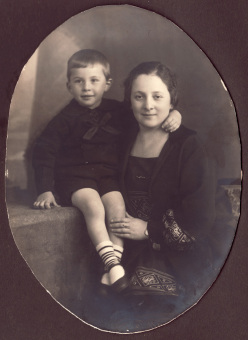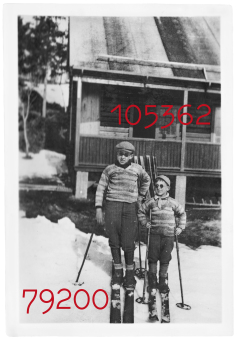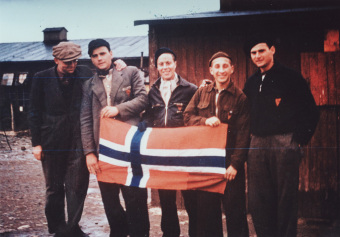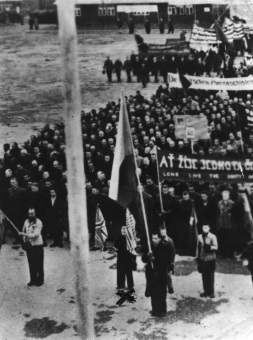Julius Paltiel (1924–2008)
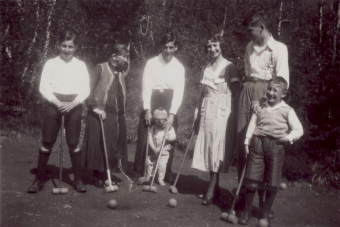
from left to right: brother Idar, grandmother, Oskar, Chaim, and Itamar Mendelssohn, Bernhard Guttmann; front right, Julius Paltiel
© Julius Paltiel
“It’s always cold, summer and winter both. I’m freezing all the time. […] I work outdoors. It’s summer now. I don’t feel either the sun or any heat, even when the sun’s burning down from a clear sky.”[1]
Julius Paltiel, the second son of the businessman Salomon Paltiel and his wife, Kaja, was born in Trondheim, Norway, in 1924. He had a happy childhood, characterized by ski touring and hiking in the surrounding countryside. After his father’s death in 1935, his older brother, Idar, attended a commercial high school. The plan was for Julius to learn the tailor’s trade, so that the two brothers could run a factory together. The Wehrmacht’s invasion in April 1940 made it impossible for Julius to continue his schooling. Eventually, on October 6, 1942, the 18-year-old Julius was arrested and, along with 80 other Jewish men, taken to the Falstad prison camp.
The Norwegian Jews were treated extremely harshly in this camp; they had to do forced labor in a stone quarry, and several died. In late October, the surviving prisoners, along with the Jewish women and children of Trondheim, were transported by train to Oslo, and Julius was reunited with his mother. Julius Paltiel was suffering from rheumatism and gout, but on February 24, 1943, he was transported aboard the Gotenland to Stettin and then, by way of Berlin, to Auschwitz. Upon arrival, his mother was forced onto a truck; he never saw her again: Only 27 Norwegian Jewish males in his transport survived this first selection and were taken to the Buna/Monowitz concentration camp. In his first assignment as part of the “cement detachment,” Julius had to carry bags of cement. His rheumatism worsened, and in the prisoner infirmary the SS physician Dr. Mengele performed medical experiments on him.
Julius Paltiel married and had two children. Twenty-five years later, Julius made his first trip back to Auschwitz.
(SP; transl. KL)
Julius Paltiel, oral history interview
(Norwegian, with German subtitles)



















